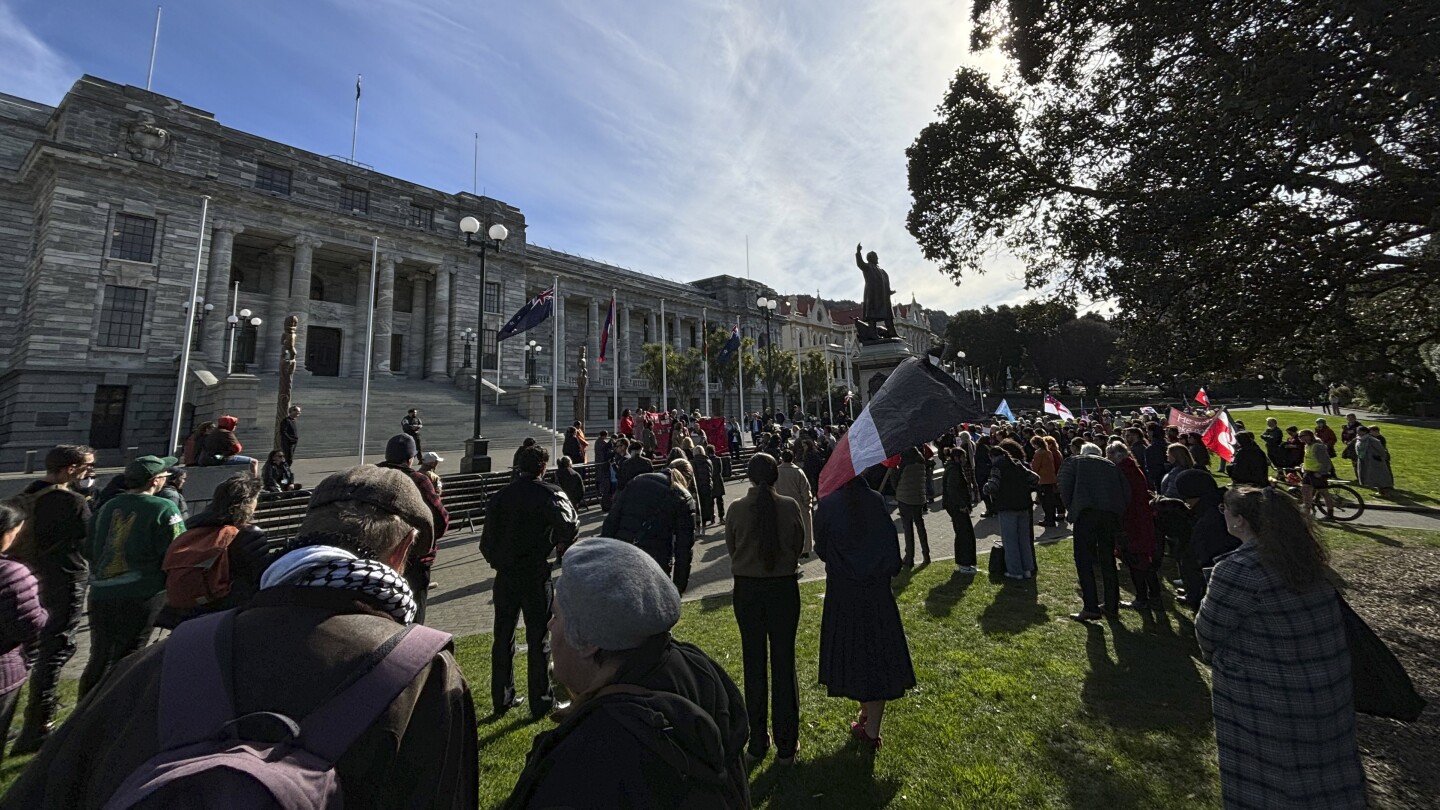WELLINGTON, New Zealand (AP) — The removal of basic Māori phrases meaning “hello” and “New Zealand” from a Māori lunar new year invitation to an Australian official was not a snub of the Indigenous language by New Zealand’s government, Prime Minister Christopher Luxon said Wednesday, seemingly joking that it instead reflected the “incredibly simple” language required when speaking to Australians.
Luxon’s defense in Parliament of the lawmaker who ordered the removal of the Māori words from an invitation sent to Australia’s arts minister was an attempt to rebuff criticism that his government is anti-Māori, as it seeks to reverse policies favoring Indigenous people and language.
The prime minister appeared to indulge in a favorite pastime of New Zealanders, who enjoy a friendly rivalry with their closest neighbors: calling Australians stupid.
“In my dealings with Australians, it always pays to be incredibly simple and clear and use English,” Luxon said, referring to the invitation sent to Tony Burke.
The invitation offered a welcome new focus after accusations of bullying, racism and insults have increased in New Zealand’s Parliament in recent weeks, with lawmakers in tears and the prime minister urging “all political leaders to watch their rhetoric.”
Also Wednesday, Luxon was asked by opposition leader Chris Hipkins about a series of inflammatory remarks he said lawmakers had recently made.
Among them was a report that New Zealand’s arts, culture and heritage minister, Paul Goldsmith — who signed off on the new year invitation — had directed officials to remove some Māori phrases from the materials, according to documents divulged by 1News.
They included “tēnā koe” — a formal way to say hello, learned by New Zealand children in their first year of elementary school — and “Aotearoa,” a commonplace Māori name for New Zealand.
“I just didn’t think it needed a lot of te reo in it,” Goldsmith told 1News, using a phrase meaning the Māori language, an official one of New Zealand. The language was once close to dying out, but activists provoked a revival over several decades, and common Māori words or phrases are now in everyday use among all New Zealanders.
The same movement prompted a revival of Matariki, the Māori lunar new year, which was established as a nationwide public holiday in 2020.
Since assuming office after the 2023 election, Luxon’s coalition government has prompted fraught public debates about race. One was over a return to English names for government agencies, many of which had assumed Māori titles in recent years.
Another was over ending initiatives that offer priority to Māori, who lag behind other New Zealanders in most health, economic and justice statistics.
Protestors gathered outside Parliament in the capital, Wellington, this week to oppose the government’s plans to remove recognition of a child’s Māori heritage from the law governing the child protection system.
“We value te reo in this government,” Luxon said Wednesday,

